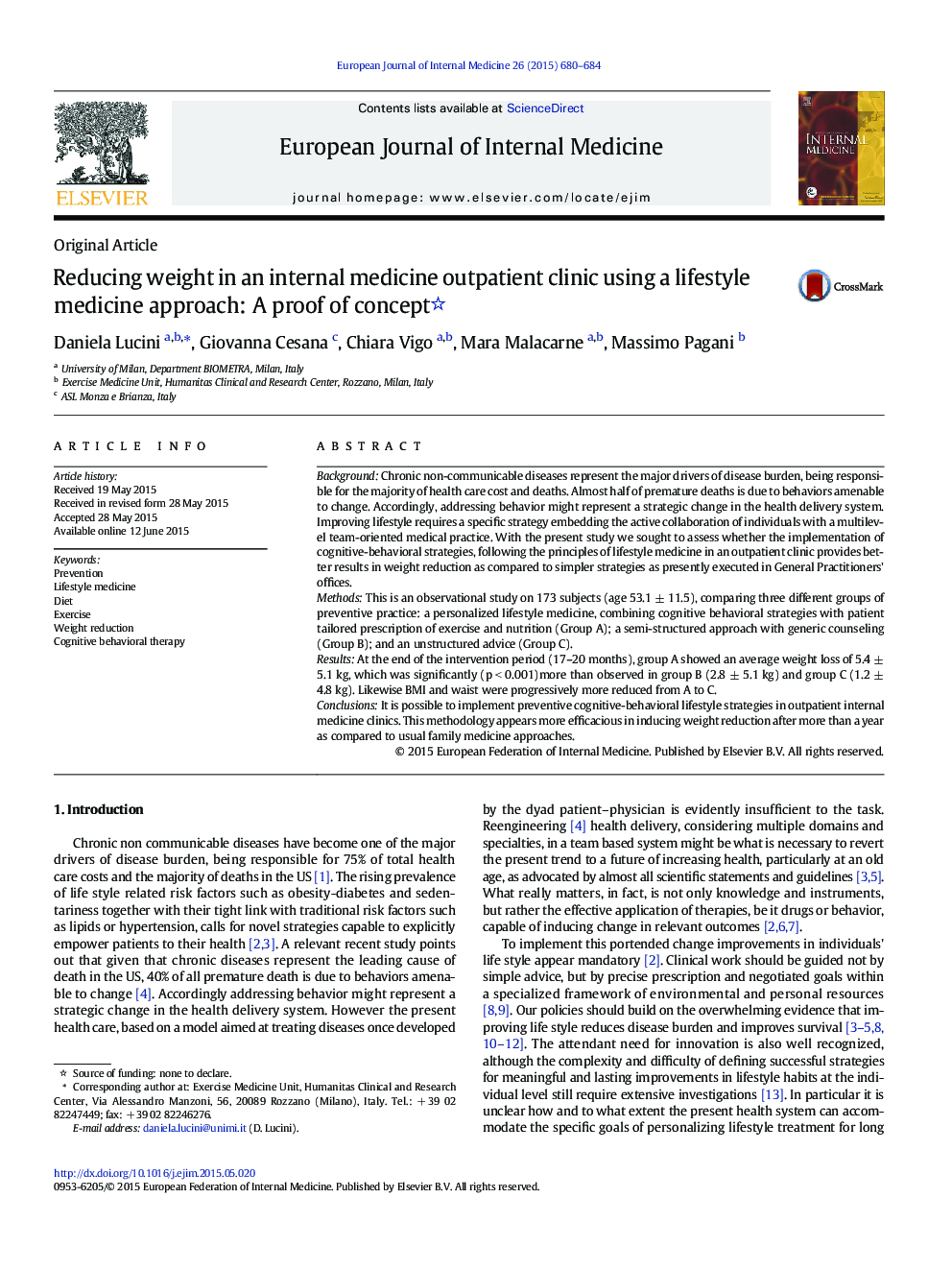| کد مقاله | کد نشریه | سال انتشار | مقاله انگلیسی | نسخه تمام متن |
|---|---|---|---|---|
| 3466037 | 1596541 | 2015 | 5 صفحه PDF | دانلود رایگان |
• Chronic non-communicable diseases are responsible for the majority of deaths.
• Addressing behavior might represent a strategic change in the health delivery system.
• Cognitive-behavioral lifestyle strategies can be implemented in outpatient clinics.
• Lifestyle medicine might represent a strategic asset in the health delivery system.
• Structured lifestyle medicine interventions might bear relevance to internal medicine.
BackgroundChronic non-communicable diseases represent the major drivers of disease burden, being responsible for the majority of health care cost and deaths. Almost half of premature deaths is due to behaviors amenable to change. Accordingly, addressing behavior might represent a strategic change in the health delivery system. Improving lifestyle requires a specific strategy embedding the active collaboration of individuals with a multilevel team-oriented medical practice. With the present study we sought to assess whether the implementation of cognitive-behavioral strategies, following the principles of lifestyle medicine in an outpatient clinic provides better results in weight reduction as compared to simpler strategies as presently executed in General Practitioners' offices.MethodsThis is an observational study on 173 subjects (age 53.1 ± 11.5), comparing three different groups of preventive practice: a personalized lifestyle medicine, combining cognitive behavioral strategies with patient tailored prescription of exercise and nutrition (Group A); a semi-structured approach with generic counseling (Group B); and an unstructured advice (Group C).ResultsAt the end of the intervention period (17–20 months), group A showed an average weight loss of 5.4 ± 5.1 kg, which was significantly (p < 0.001)more than observed in group B (2.8 ± 5.1 kg) and group C (1.2 ± 4.8 kg). Likewise BMI and waist were progressively more reduced from A to C.ConclusionsIt is possible to implement preventive cognitive-behavioral lifestyle strategies in outpatient internal medicine clinics. This methodology appears more efficacious in inducing weight reduction after more than a year as compared to usual family medicine approaches.
Journal: European Journal of Internal Medicine - Volume 26, Issue 9, November 2015, Pages 680–684
